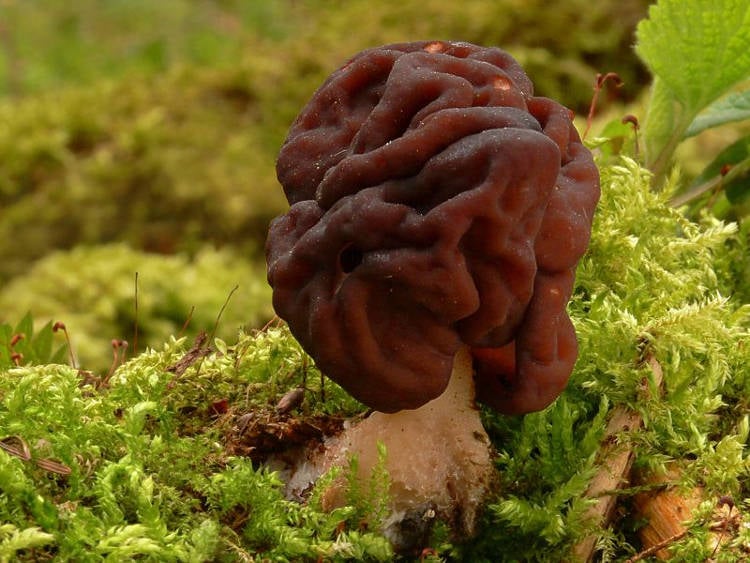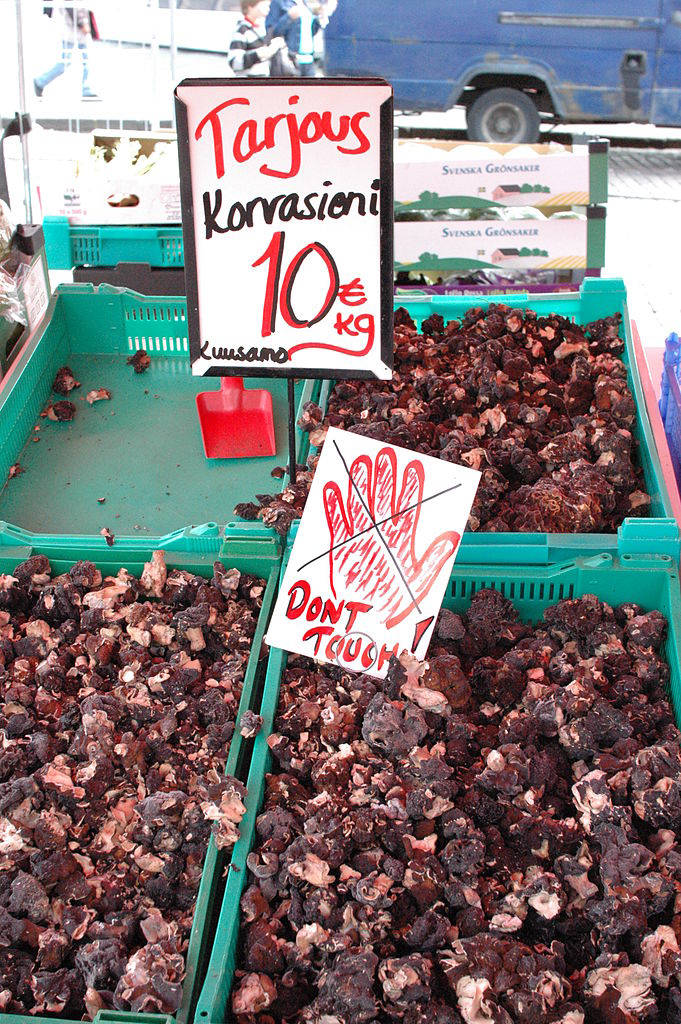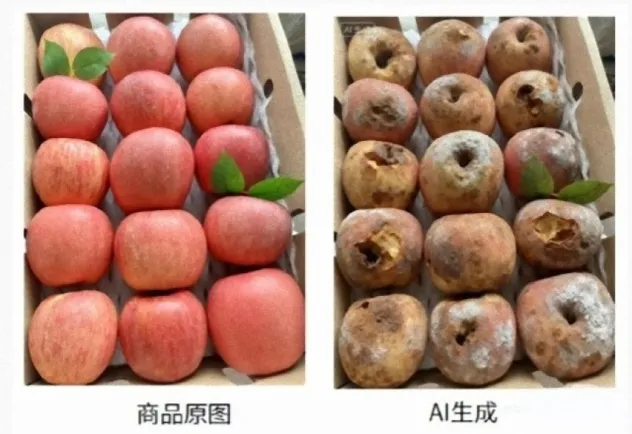Gyromitra esculenta, or the False Morel, is a Spring mushroom that contains the toxin and carcinogen gyromitrin, which makes it illegal to sell and cook in countries around the world. In Finland, however, it is considered a delicacy.
False Morel mushrooms have historically been consumed in northern Europe for centuries, but as chemistry and medicine evolved, it became somewhat of a forbidden fruit due to the dangers of consuming even small amounts of gyromitrin. Symptoms associated with the ingestion of this known toxin and carcinogen include severe headaches, vomiting, nausea, extreme dizziness, diarrhea and, if the damage to the liver is too serious, even death. Their sale in countries like Sweden and Norway was made illegal years ago, but in Finland people still eat it with gusto.

Photo: Lebrac/Wikimedia Commons
Great Big Story recently featured an interesting video on the popularity of False Morels in Finland, the takeaway of which is that processing them properly makes these mushrooms relatively safe too consume. There are still those who claim that gyromitrin builds up in your system over long periods of time and can cause serious health problems, so the general consensus is that if you just can’t give up false morels, you should at least not eat them regularly.
Reminiscent of a human brain – especially when sliced in half – false morels must first be rinsed in plenty of cold water (one liter for every 50 grams of mushrooms) for several hours, two at least. They must them be boiled in plenty of water (at least three parts water for every one part mushrooms) for about ten minutes, five minutes minimum. During this step, the person doing the cooking must be careful not to inhale the fumes from the pot, as they can reportedly carry gyromitrin as well.

Photo: Ilmari Karonen/Wikimedia Commons
After the first round of boiling, the mushrooms must be drained in a colander and rinsed in running cold water. Then the boiling and rinsing steps must be repeated before the false morels can be consumed or used as ingredients in various dishes. Even after going through all these steps, there may still be traces of gyromitrin in the mushrooms, which, as previously mentioned, could build up in the body over time.
According to the Nordic Recipe Archive, “one should never stay in a confined space together with fresh false morels, like inside a car or in a poorly ventilated room. People have been known to have headaches and nausea caused by the toxic false morel fumes when travelling in a car with a basket of these mushrooms beside them.”
At one point it was believed that drying false morels made them safe for consumption, but studies have found that to be false. Therefore, dried mushrooms must be processed just like fresh ones after being reconstituted.
Gyromitrin poisoning can cause various gastrointestinal and neurological symptoms, with severe cases leading to liver and kidney damage as well as seizures and coma, and, in extreme cases, even death.
Despite the danger posed by eating or even being near false morel mushrooms, in Finland they are used as ingredients in Michelin star restaurants and even sold as canned goods in the supermarket. Their sale is however strictly regulated by authorities: warning signs must be placed in the aisles where they are sold, and theis packaging must contain a leaflet with processing and cooking instructions.












